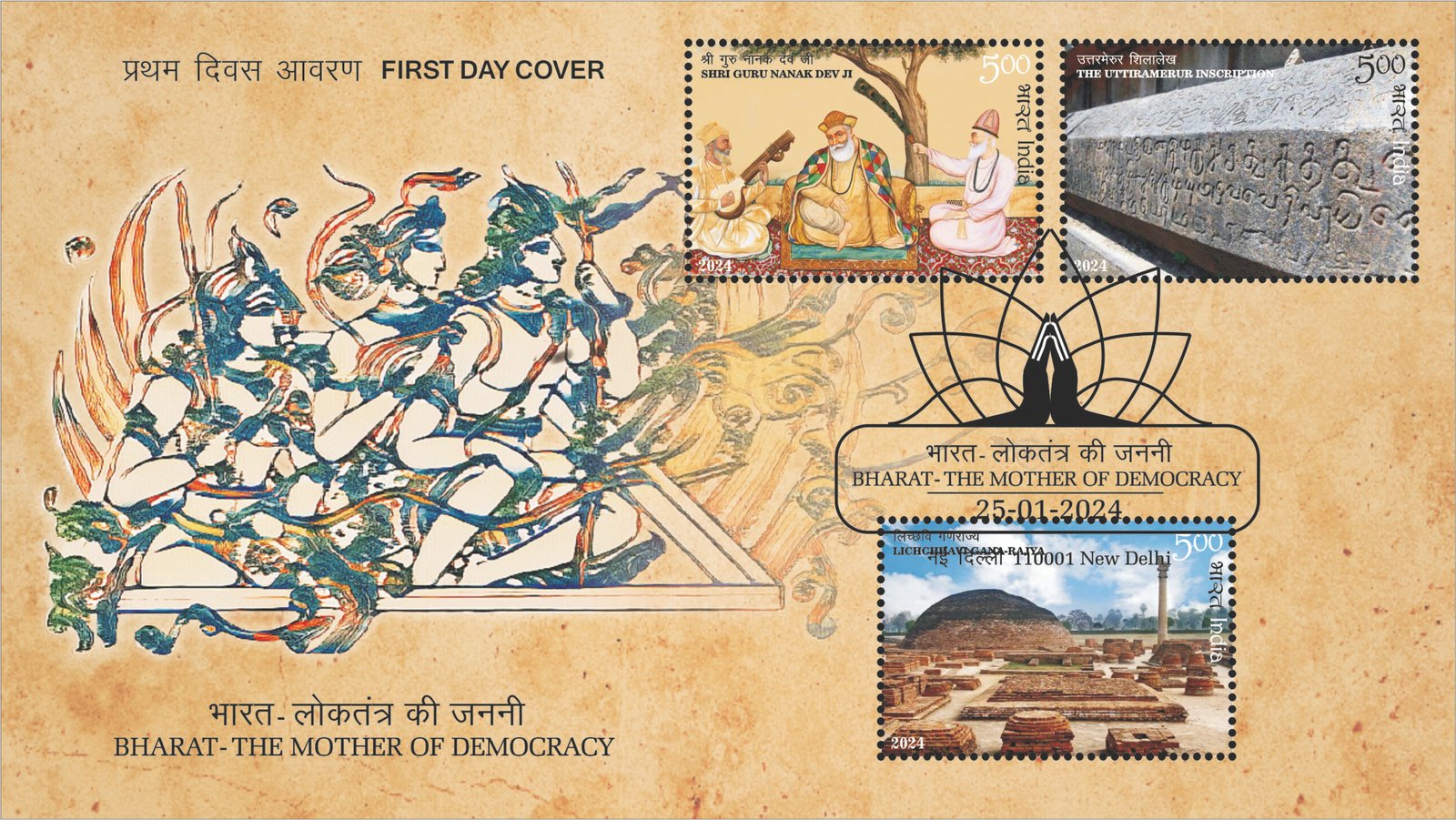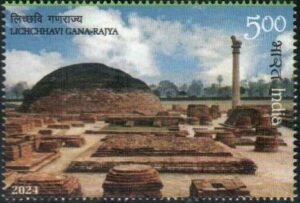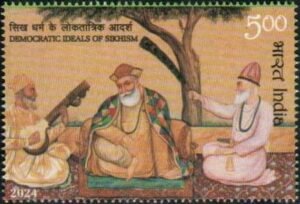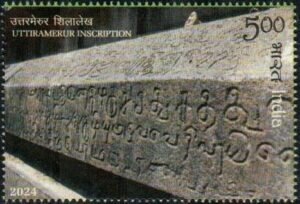India: Mother of Democracy

Technical Data
| Date of Issue | January 25, 2024 |
|---|---|
| Denomination | Rs. 15 |
| Quantity | 143,334 |
| Perforation | 14½ |
| Printer | Security Printing Press, Hyderabad |
| Printing Process | Wet Offset |
| Watermark | No Watermark |
| Colors | Multicolor |
| Credit (Designed By) | Mr. Suresh Kumar |
| Catalog Codes |
Colnect codes IN 2024.01.25-02 Yvert et Tellier IN BF234 Stanley Gibbons IN MS3895 |
| Themes | Archaeology | Religion |
Stamps in this Miniature Sheet
Bharat – The Mother of Democracy: Celebrating the Spirit of Democratic Legacy
On January 26, 1950, India celebrated a historic moment—the birth of the Republic of India. Marked by a 31-gun salute to the President, the ceremony took place at the splendid Darbar Hall of the Government House (now Rashtrapati Bhawan) and was attended by over 500 distinguished dignitaries, including Dr. Soekarno, President of Indonesia. This momentous occasion symbolized India’s transition from colonial rule to a sovereign republic built on the foundational principles of justice, liberty, equality, and unity.
Tracing the Democratic Roots of Bharat
Long before democracy was rediscovered by Western thinkers, Bharat (India) had a rich history of republican governance. Ancient republics such as Lichchhavi, a key part of the Vajji confederacy, and the contemporary village of Basarah in Bihar, practiced self-rule governed by democratic assemblies. Historical references, including inscriptions in Pali, Tibetan, Jain, Greek, Nepalese, and Sanskrit, highlight universal civil rights, the role of law, and systematic deliberations through committees and electoral procedures.
The Lichchhavi Gana-Rajya was particularly notable for its open and secret ballot system. Leadership positions president (ganapati), vice presidents (up ganapati), army chiefs (senapati), and ambassadors were chosen by consensus or electoral process. This system operated on the principle that “let one faulty escape than to punish one who is not guilty,” a reflection of Buddha’s moral vision.
Early Democratic Practices
One of the earliest documented electoral systems comes from the Uttiramerur inscriptions of the Chola period (C. 919–921 CE). These inscriptions describe a fair and meticulous process for electing local representatives (sabha members) through a lottery system, with strict eligibility criteria such as property ownership and moral conduct. The elected sabha was responsible for governance, maintaining law and order, and resolving disputes, highlighting a decentralized governance model.
The mahāsabha/sabha, led by elected representatives, was an early example of participative democracy, where local bodies coexisted peacefully, ensuring accountability and justice. Importantly, provisions for impeaching corrupt individuals were already in place.
Democratic Values in Sikhism
Sikhism, founded by Guru Nanak in the 15th century, embodies democratic ideals of equality, justice, and community participation. The Sikh prayer ‘Ik Onkar’ underscores the oneness of humanity, transcending caste, creed, and social barriers.
The Sikh institution of Langar (community kitchen) reflects social equality and solidarity, while Nirantar Anna-dasoha (free food service) and Gyandasoha (knowledge sharing) promote communal harmony. The Gurmat system further emphasizes consensus-based decision-making, encouraging active participation of followers in community affairs.
Commemorative Miniature Sheet: Honoring Democratic Spirit
As Bharat enters the Amrit Kaal, it is fitting to revisit and honor the legacy of democratic thinkers and the foundations that established India as the Mother of Democracy. To commemorate this remarkable journey, the Department of Posts, Government of India, has proudly released a miniature sheet of postage stamps celebrating the spirit of democracy in India—the world’s largest democracy.
This miniature sheet serves as a tribute not only to India’s constitutional values but also to the historical continuum of democratic thought from ancient republics to modern governance. It stands as a reminder that the democratic spirit continues to thrive, encouraging active participation, equality, and justice for all.
First Day Cover




